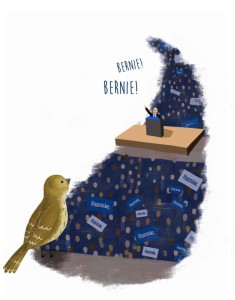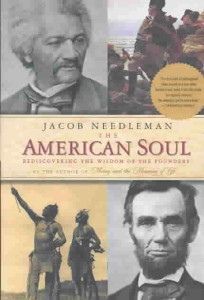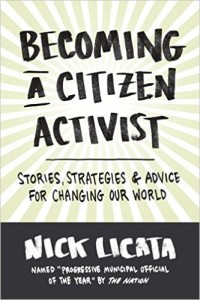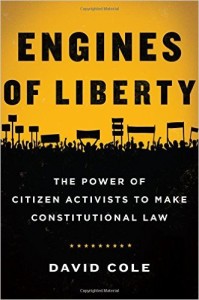American Dream
Whispers.
January 23, 2021“We may stumble, but always there is that Eternal Voice, forever whispering in our ear.”
-Science of Mind, p. 33
Eschatological secret [ultimate destiny of humanity]; wise heart…secret hope. -Thomas Merton
Revelations of Divine Love.
Lady Julian of Norwich.
‘Julian says that we have in us here such a “medley” of good and evil that sometimes we hardly know of others or of ourselves wherein we stand…’
-https://www.gutenberg.org/files/52958/52958-h/52958-h.htm
COVID
25,000,000 U.S. Cases
414,000 + deaths.
From Krista Tippet, Saturday, January 23, 2021
This week’s Pause is written by Krista:
Dear Friends,
I’ve been thinking this week about vocation — from the Latin vocare, callings. Somewhere along the way in this culture a person’s vocation became synonymous with their job title, but I think of vocation as the full range of our callings as human beings. Yes, as professional people but also as family members and neighbors, parents and friends, and members of a body politic. Vocation is not so much about goals and accomplishments. It’s about how we orient our lives and our attention and our passions. At different stages in life, different callings emerge and take primacy — what we focus on and pay homage to with our presence, and what we fight for from the ground of what we love.
To pick up the question of what is calling me and you is one way to begin to walk, each with our own offering, towards a new kind of wholeness in our life together. For there are callings in a time as in a life.
Some of us — many of us — are called right now primarily to get safe and fed and warm, to keep those we love safe and fed and warm. Some of us are called to place our bodies between other bodies and danger. Some of us are called to be bridge people, staking out the vast ground at the heart of our life together where there is meaningful difference but no desire for animosity.
And some of us are called to be calmers of fear. This calling is so tender, and so urgent, if what we truly want is to coax our own best selves, and the best selves of others, into the light. Fear is the primitive, powerful place our brains go when they perceive threat. It collapses imagination, closing down a sense of the possible. It looks for an “other” to blame, and it finds one. The anger that has consumed our life together on every side is fueled by pain and fear.
This is an uncomfortable truth to take in, a fact not about life as we wish it to be but about life as it is. One of the most painful things for me to watch in the frenzy of our life together in recent years was the loss of any capacity to remember that essential contradictions run wild in each of us and are real, too, in whoever our “others” have become. There is a terrible but also a beautiful, and potentially redemptive, complexity at play whenever human beings are involved.
I wonder if now, more of us who are safe enough might feel ourselves called — to invoke Bryan Stevenson — to walk towards the reality that those who confuse and vex us are more than the worst thing we believe they are or have done. We might be called — to invoke an image Frances Kissling once gave me that has shaped my sense of calling ever since — to populate and build up “that crack in the middle where people on both sides absolutely refuse to see each other as evil.” We spend so much time and energy in this culture, so much fierce creativity, wishing to change other people’s minds. But in life as it is lived, we know that’s not how it works. Hearts soften, and then minds open. Pragmatic possibilities appear that our bodies and brains literally could not fathom before.
The show we’re offering up this week is another kind of nod to our complexity — and to how hard a time we continue to inhabit. Even as I write this with passion I feel my body clenching, exhausted by the idea of greater callings. On some level, I’m just trying to get through the days. Katherine May, who I learned about when I asked people on Twitter what was helping them get through their days, reminds me that heeding my clenching and exhaustion is also part of the way forward. She meditatively explores “wintering” as a season of the natural world but also as a place our bodies and psyches need to go, a season that recurs again and again across a life. We cheat and dismiss this in life as we’ve been living it, but it has presented itself insistently in a pandemic year we might reimagine as one long communal wintering.
We can’t move forward without grieving all we’ve lost in the past year. Closer to the ground, this means we have to let in the fact of sadness — a precursor to pain and fear — with some reverence. If happiness is a skill, Katherine May says, so is unhappiness. Winter embodies the strange complexity of reality. It is the bitterest season, we blithely say. And all the while it manages not to be the death of the life cycle, as Katherine May reminds, but its crucible.
Katherine May helps me, and I hope she offers some restorative grace to you.
Krista
Rev. Dr. Barbara Holmes, Center for Action & Contemplation:
…the American dream of freedom and equality could be made real through courageous action in a spirit of love, in pursuit of human dignity for all. This dignity includes all who suffer from homelessness, joblessness, purposelessness, carelessness, hopelessness.
Because our needs are so great today, and your care so constant, we know that you are rebuilding the network of compassion around new visionaries who you have assembled for this hour. Surprise us with the discovery of how much power we have to make a difference in our day:
—A difference in the way citizens meet, greet, respect, and protect the rights of each other.
—A difference in the breadth of our vision of what is possible in humanization, reconciliation, and equalization of results in our great city.
—A difference in the way government, business, and labor can work together, for justice and social enrichment.’
https://www.youtube.com/watch?v=kceBOoQxEA8&feature=youtu.be
The movement continues.
July 5, 2016‘…if we can separate it out from all the right- or left-wing rhetoric, just step back into our independent mind for a moment and don’t worry about whose side you’re on or who’s good or — what are the duties that are implied by our rights? We know the rights we have. We know their words. What duties do we have? That is a question I would invite people to think about without any political agenda in their mind. And when you think about that together — and I think that’s the thing I would say we really need is — from each other is philosophical friendship, we need that people come together to think. Not action groups, those are there, waiting, but thinking groups, because out of good thought will come right action.’
-Jacob Needleman
‘What’s interesting about (Frederick) Douglass, why he should be an icon for all Americans, is that he saw, more clearly than any of us could, the evils of slavery since he was a slave, and he didn’t hate America. He loved America and he hated what America was doing with the slavery. Nowadays people who see what’s wrong with America wind up hating America, and people who are loving America, don’t want to see what’s wrong with America. In my book, I’m trying to say that America is — the ideals of America can be re-mythologized, can be expanded and deepened to such a way to include both our great triumphs and the hope we brought the world, and also the terrible crimes we’ve done. So let’s all have Douglass in our educational system as well as Jefferson.’
[…]
‘America now in the world is very necessary, if it only stays what it’s meant to be, which is the guardian of the search for conscience, the search for goodness in people. As long as it has that going on as what it’s protecting, even if the presidents and the congresspeople don’t know about it, then it’s needed in the world because the world needs people to develop into men and women of conscience.’
Jacob Needleman is Professor Emeritus of Philosophy at San Francisco State University. His many books include What Is God? and The American Soul.
(Excerpts/quotes from radio podcast, On Being, with host Krista Tippet.)
~
Seth Godin:
‘Organized bureaucracies thrive on compliance. It makes it easier to tell people what to do.
But contribution is the only way that tribes thrive, the best way to make change happen and the essence of being part of a community.
It’s a shame that we spend so much time teaching our children (and our employees) to comply. Far better to seek out contribution instead.’
‘Nick Licata dedicates his book to ‘those working to sustain a democracy that allows its citizens the freedom to shape their future, free of prejudice and poverty.’
Excerpts:
Every citizen should have the power to meaningfully participate in a democracy. Too often citizens defer to politicians, as if they are the only ones who should exercise power. You don’t need to start a movement to challenge the status quo, but you do have the power to question it.
Ultimately change begins with us. We have to help ourselves create our own future. If we don’t, someone else will.
The first step to becoming an active citizen is to find out who has power, knock on their door, and say open it up. If the door doesn’t open, then we have a choice: we can walk away or have the courage to knock harder until they open the door.
When pushing for monumental change, it’s important for political backing. So when one or two step up and champion the issue, support their election campaigns with contributions and volunteer hours if the cause is to be taken seriously.
As an activist we can echo the anger and hopes of the disenfranchised, but to make institutional changes, we need an organization that can mobilize people to join together to support and work for an issue or candidate.
The best time to win over a politician is when they’re running for office.
We need more than the right message to win a struggle; we need to be organized. We need to mobilize those who have the most to gain and have been ignored by others.
To actually achieve a goal, we have to consider how to use the political power of government and the social power of the populace to push for change.
I learned that those in authority don’t always look out for the weakest despite what they tell us.
It helps to have someone show you how to learn to look at the world differently. We are social creatures, and those we socialize with influence our views. If your friends passively accept what those in authority hand down, changes are that you will too. But if you have friends who prod those making the decisions, listen closely to what they are asking, because their questions could represent our concerns as well.
In looking around our urban landscapes, we need to consider how seemingly innocuous practices shape our physical environment.
Politicians often know what the right thing to do is, but unless there is an organized constituency to put pressure on other public officials they may feel they don’t have enough support to get legislation passed. The role of a citizen activist is to coax politicians to have the courage to pursue their own beliefs.
I have found that if we go out of our way to listen to those who we most strongly disagree with, we can gain insights on how they are successful in reaching people we want to reach. In learning what they say and how they say it, we can learn how to reach those same people with our message.
If we want to change the behavior of others, we may need to acknowledge that they have some valid concerns. The easiest way to find out is to ask them.
Whenever new information is brought forward that supports a position, do not let it sit idle. Use it.
Citizens often find that the biggest obstacle to change is government inertia. It is difficult to wrestle with because its reluctance is couched in soft general terms and processes. But government hesitation will often melt away if opposing parties agree to a common course of action. That is why it is important to talk to our opponents. We need to think of how to work with them to overcome a common antagonist; often it is an unresponsive government.
We shouldn’t be afraid to be part of the system if we know what we want.
A significant step — and a necessary one — is getting someone elected who is going to champion an issue.
We have to remain attentive to those who are put iinto office. It’s no that they will renege on their promises, but that they need to know that there is continued support for the issues that they ran on; otherwise, the daily duties of government will overshadow those issues.
Creating citizen commissions is an important step to integrating activists and their ideas into government. Although citizen commissions are only advisory, they can gain the ear of both politicians and the media.
By forming a city commission citizen activists were able to consistently advocate.
Opening the door for one group of citizens does not mean that others are being denied entry. In other words, gaining access to public power is not a zero-sum game; it is additive. That is why citizens supporting change in one field of interest should lend their support to citizens who also wish to change the status quo for their particular group. Protecting individuals’ civil rights is an expansive notion.
As advocate groups become vocal, they catch the attention of politicians, particularly at election time, when citizen groups often endorse or rate candidates. Take advantage of those election debates and forums. There are often questions from the audience. Make sure you have advocates of your cause in the audience. If there is a demand for more direct citizen participation, press candidates for commitments to form a citizen’s commission if there is none for that particular group.
Political leaders who can listen to those concerns are also critical to success. They need to sponsor the needed legislation and convince other politicians that it is time to change the status quo. That calls for a coordinated strategy of having outside pressure groups work with inside politicians to get legislation passed.
Actual living conditions give rise to grievances, which creates the opportunity to bring people together to solve them.
I have found that too many times constituents come to my office ot sure what exact problem they want solved. They have concerns, fears, and gripes, but if they do not have a course of action to solve a particular problem the elected official can easily express support but not follow up with actually doing something. Having something written down sharpens the discussion and leads directly to the next most important topic: what should be done.
Do not just ask for something that could be years off, because it will most likely get buried among all the other requests that are calling for more immediate action.
Patriotism combined with fear is one of the most effective ways to suppress dissent and civil liberties.
When many people become active, the social dynamics of a community change.
Citizens recognized that their problems could be resolved only by government. They demanded that government adhere to its democratic principle of protecting the interests of all citizens – – not in the limited legal sense, but in the classic one of universal equality of all people that this nation was founded upon. To achieve success, the laws must be changed, and that means having responsive and effective elected representatives working alongside citizen groups .
The impetus for change must arise from the people.
Citizen commissions must continue to listen to their constituency; otherwise, they become part of the system tolerating injustices rather than fighting them.
Activists need more than slogans to change the practices of private and public institutions; they need to arm themselves with solid information to move others to join them.
Knowledge is power, and if used effectively, it can shape the future.
It is important as an activist to scan the Internet for organizations that are working in an area that you have an interest in affecting.
When beginning a major-issue campaign, it is also important to learn from similar efforts. Read reports and news releases to see what has worked elsewhere.
Even when using good information obtained from third-party sources, conducting local research is still necessary to see if that information applies to a particular situation or institution.
Bias crimes, often referred to as hate crimes in the media, victimize every member of the targeted group. These are criminal acts committed against a person because of that person’s real or perceived characteristics (race, religion, sexual orientation, etc.)
If we are researching an issue or organizing an effort, one of the first things we should do is see if other organizations have been active in the same area. Go to their websites and see if they are members of any national associations. Also check local websites and print publications that may list groups that have a relevant connection an issue.
In the world of citizen activist movements, there is no one depository or network, since there are so many issues and organizations. Nevertheless, within each issue area there are often national organizations and associations that can provide both information and assistance to local start-up efforts.
President Obama has said that cities are at the forefront of pursuing innovative and progressive legislation.
National networks are critical to providing politicians and activists with the most current information on what policies and project are being tried and are working in other cities. They must also be open to the public so that knowledge is not concentrated in the hands of politicians and anyone who has access will be able to use the network’s information to transform his or her own community.
Strategies must be shaped to each state’s legal framework.
Be dedicated to the long game, keeping people involved year after year no matter what particular setbacks were dealt to t hem. This is applicable to any movement seeking to change the status quo.
It’s not about winning the debate, but moving the public to accept our point as legitimate.
Build coalitions by not writing off some people who we would have ordinarily put into boxes labeled ‘Opponents.’
Churches, synagogues, businesses, community groups, and schools all became part of a growing coalition that had been formed through previous campaigns.
Activists had followed the golden rule: treat others how you’d want to be treated. In asking others to keep an open mind, they kept theirs open as well.
Remember: legalizing marijuana took more than four decades of incremental steps to achieve. On a national level, then President Jimmy Carter called for decriminalizing the possession of marijuana.
Even having politicians promote an issue is not good enough. They need community backing to sustain their efforts in fighting off arguments from other politicians opposing change. Electing someone to office is only opening the door for change; politicians need citizens to organize to push legislation through it.
Knowledge is power; obtain it and we gain power to help shape the legislation we are seeking.
Recognizing a shared common interest is a powerful political realignment cutting across traditional party lines, dramatically altering laws and cultures.
To involve more people and to sustain their involvement, we must get the word out:
- Social media
- TV/Radio
- Flyers
- Pamphlets
- Handouts
- Posters
Every citizen in a democracy has the right to organize a group of like-minded people to influence their elected representatives. Some, due to wealth or social standing, have more political power than those without similar resources or status. However, smart tactics can overcome the influence of powerful groups.
- Petitioning
- Polling
- Public forums
Listen.
The manner in which information is presented is just as important as its content.
Coax rather than lecture.
Activists need to understand how protestors can gain political power through entering electoral politics, e.g., Tea Party vs. Occupy movements.
The lesson for all activists is that we need to have a dual-prong approach to changing the political landscape: being in the streets protesting arouses the public, but afterward quiet organized efforts are needed to get supporters elected to office so that they can actually change the laws.
It’s a comfortable culture of continuing the past without questioning the assumptions that sustain it. How do we find ways to gently jar people out of their daily routines in order to show them that their life will go on an no disaster will result? Be innovative. E.g., ‘Gentle Thursdays’ a the University of Texas in Austin encouraging students into expression that would break down ideological, social, and cultural differences with harmless activities releasing spontaneity dwelling inside each student who normally wouldn’t have opportunities to express it.
Hold a community gathering inviting politicians to attend so they are immersed in the physical environs of your community.
Societies have two-kinds of power: people power and institutional power. In a representative democratic government, these two powers are balanced through a transparent application of laws. But when political or economic power becomes concentrated in too few hands, then we need to acquire power to realign the balance.
Miracles can happen through mutual kindness and compassion.
Working relationships develop within a self-help community.
When people have a sense of ownership, they gain confidence and they hold each other accountable. They need not just physical stability but also social responsibility. In other words, they are becoming citizens.
It is important when facing opposition to a new concept or a new approach to an ongoing problem that we have two things: patience to talk through others’ concern and examples that show this concept or approach has been tried elsewhere.
Nourishing a vibrant democracy calls for an educated citizenry, and that opportunity begins in high schools and colleges. While a number of states require some type of civics requirement in school curriculums, too often it is limited to reviewing a state’s history. At the college level, when students become eligible to vote, civics is largely ignored as a basic requirement. Unfortunately the emphasis on training students for jobs has overshadowed the need for colleges to educate students about their responsibilities, duties, and rights as citizens.
Every generation of students has the power to shape the future.
A democracy only works when all citizens can fairly participate in it.
Show up at the voting booths. Let our voices be heard. The power for changing the world lies—with us.
~
Rebecca Stolnit/Hope in the Dark
“This is an extraordinary time full of vital, transformative movements that could not be foreseen. It’s also a nightmarish time. Full engagement requires the ability to perceive both.”
~
David Cole/Engines of Liberty
‘David Cole argues in Engines of Liberty, citizen activists are the true drivers of constitutional change. Drawing on interviews with participants in the most successful rights movements of the last 30 years, he shows that time and again, associations of ordinary Americans confronting long odds have managed to transform the nation’s highest law. And they have done so largely through advocacy outside the federal courts altogether’ (Amazon).




